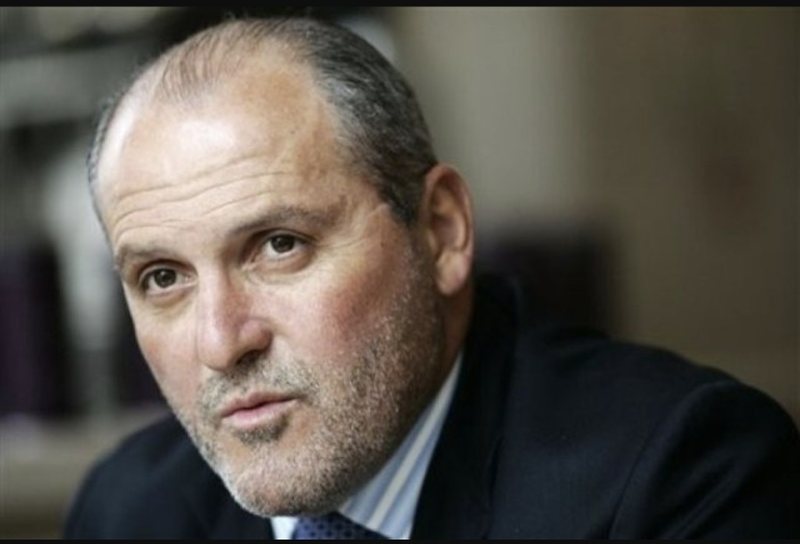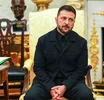
Professor Pëllumb Pilinçi and Nikollë Xhufka, two prophets and a film


1/ It was not a scene created with artificial intelligence. Professor Pëllumb Pilinçi, in this July heat, first went to Theth and then to Kosovo. In the eyes of the hosts, a figure appeared who arrived in a “Cadillac Escalade”, the kind that usually appears on the evening news with ministers and presidents around the world. The guest, however, is even more important in status - in the eyes of the hosts, a similar scene was seen with the visit of President George W. Bush - because the bodyguards are holding onto the doors and windows of the moving car, a sign of the high risk of the protected person.
The endangered person emerges dressed in a suit and tie, combed and with a determined face and gaze, determination reinforced by a booklet that he takes out of the inside pocket of his jacket. Over the last three years, the Professor, as he likes to be called, has been expressing his opinion and belief about the social order in Albania (“everyone is a thief”) and after further diluting the argument on general theft or the generality of theft, he brings out the main argument that should explain his mission, the booklet with the Mission Program.
The mission is extremely important and has been given to him at the most important summits in the US, which he cannot speak about publicly, although three years ago he explained how one of his closest friends was Secretary of State Tony Blinken who "knows where I am and calls me every hour on the phone."
The work of Blinken's regular one-hour phone call schedule remained a secret and will remain so until it is eventually discovered whether Secretary Rubio's obligation to keep up with his predecessor's schedule has been inherited, if for no other reason than because the Professor's mission is not over, as his photo in Kosovo proves. With several microphones in front of him, a supporter on either side, and four bodyguards with advanced forms of expanded musculature and frowning faces, Mr. Pilinçi takes out the booklet - cardinal argument - and declares the solution to all problems with the establishment of a technical Government, composed of intellectuals, that rare species that resembles him.
(The final scene, as he slams the booklet on the table, a sign of the ultimate truth, would be interesting to see in a film that manages to bridge the gap between Paolo Sorrentino's and Alfonso Cuaron's explorations)
2/ Nuk kisha dëgjuar ndonjëherë për Pëllumb Pilinçin dhe vështirë të kenë dëgjuar për të në Theth e Kosovë, por ai përmbushi kushtet themelore për t’u bërë lajm. Hyri në Theth e Kosovë me “Escalade” e truproja, kishte kostum e kravatë, ishte i krehur dhe deklaroi se ishte me mision të rëndësishëm nga Amerika duke bërë me dije njëkohësisht e në formë konsistente se duhet themeluar një Qeveri teknike, diçka si formën le të bëhet njëherë Qeveria e për hollësitë flasim më vonë. Për një publik të përgjithshëm, këta janë faktorë më se të mjaftueshëm të kalimit të testit të pranueshmërisë. Pra, profesor Pilinçi i këtillë siç është, bëhet i legjitimuar edhe po të mos japë ndonjë shpjegim shtesë - madje do të kishte avantazh të mjaftueshëm besueshmërie e pranueshmërie po të mos jepte shpjegime shtesë.
Dëgjova disa nga intervistat e tij- një hapësirë e shtrirë mes konvencioneve (lufta kundër korrupsionit, misioni i shenjtë amerikan, etj.) dhe komedisë së absurdit të të shpallurit se ky është shpresa demokratike e Shqipërisë.
Mbase ky konstatim humori - se profesori Plinçi është shpresa për demokraci në Shqipëri, flet jo aq për gjendjen e demokracisë në Shqipëri sa për vetironizimin kolektiv në vend: nëse qytetarët e Shqipërisë përgjatë tranzicionit kanë arritur që të prodhojnë dy opsione politike që zëvendësojnë njëra tjetrën duke ia marrë njëkohësisht veset njëra tjetrës, atëherë konkluza logjike e kësaj spiraleje është Shpresa - Pilinçi, apo çfarëdo që ai të paraqesë (skenën filmike Sorrentino-Cuaron, për shembull).
3/ Ky mund të merrej si njëri prej rrëfimeve për profetë të rrejshëm (misionari Pilinçi si i dërguari i Amerikës) dhe historia është e mbushur me ta që nga rrëfimet biblike. Një vistër e tërë studiuesish janë marrë me këtë fenomen në shekullin XX dhe aty Pilinçi nuk do të meritonte ndonjë vëmendje të veçantë krahasuar me bashkështetasin e tij, Nikollë Bllazhde i njohur në Kosovë si atë Nikollë Xhufka.
Nikollë Xhufka u bë i njohur fillimisht si prift shqiptar ortodoks që theu derën e një kishe ortodokse serbe në Podujevë e duke shpallur se kishte mbajtur shërbesën e parë shqipe në të.
Zoti Bllazhde nuk konsiderohet prift nga kanoni i Kishës Ortodokse Autoqefale të Shqipërisë, autoritetit të vetëm fetar ndër ortodoksët shqiptarë. Por, zoti Bllazhde zgjodhi rrugë tjetër jo vetëm duke e shpallur veten prift por edhe duke shpallur se është Peshkop i Kishës ortodokse shqiptare në Kosovë, një entiteti joekzistues.
In the delicate religious balances among Albanians and the religious-ethnic mix in Kosovo, the appearance of Mr. Xhufka affects canon law and the legal regulation of Kosovo. In canon law, Mr. Xhufka could have been a priest ordained by the Autocephalous Orthodox Church of Albania, and this did not happen. From a canonical point of view, even less could he have been called a Bishop, opened a Metropolis and established an Albanian Orthodox Church of Kosovo. In the order of Orthodoxy, there is a way in which this could eventually be done, and this implies a canonical hierarchy and an inter-church process.
From a legal perspective, Xhufka is entering buildings where Serbian Orthodox Church services have traditionally been held, which is not only an ecclesiastical sacrilege but is contrary to the constitutional-legal regulation with which Kosovo declared independence, namely the Ahtisaari Package.
Wrapped in a national flag, Xhufka is leading a political movement that claims to be religious. He is becoming a prophet of a new ethno-clerical belief that every political problem in Kosovo is solved by claiming Albanian ownership of Orthodox churches in Kosovo, while simultaneously denying the identity of Kosovo Serbs and Serbian Orthodox believers as part of the identity of the Republic of Kosovo.
In the religious tradition of Kosovo, the biggest problem that has arisen in mutual relations - and this is a problem that continues in a prominent form with Patriarch Porfirije - has been the ethnophyletism of the Serbian Orthodox Church. In the face of this problem, a version of Albanian ethnophyletism is now manifesting itself with Xhufka, even in a part of the Albanian space where Albanian Orthodox believers are almost non-existent.
4/ I see that some mayors in Kosovo have started to receive Nikollë Xhufka on an official visit. Maybe they should also invite Professor Pilinç. If nothing else, to give some ideas for the script of the Sorrentino-Cuaron film. In that film, the 20th century begins with Bishop Noli, who combines the great name of America with the holy mission of the Orthodox Autocephaly of Albania and the Albanians. In that film, the 21st century develops with Professor Pilinç and Nikollë Xhufka. / Koha Ditore

The Ukraine summit that ignored the tough questions
ideas
top
Alfa recipes
TRENDING 
services
- POLICE129
- STREET POLICE126
- AMBULANCE112
- FIREFIGHTER128



























